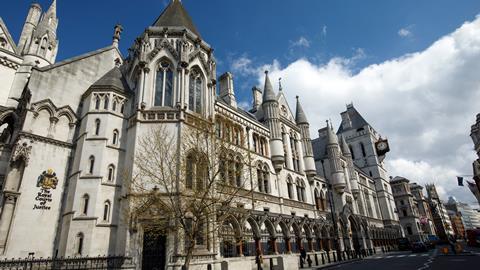A court ruling could mean a clinical negligence claimant who asked for £5.7 million but settled for a fraction of that after two years of litigation, does not have ‘to pay a penny’ of the successful defendant’s costs.
The Court of Appeal heard that the current state of the law in PI cases could breach the 'rule against absurdity' and would be a 'perverse incentive' for defendants to take cases to trial rather than settle.
Rebecca Harrison sued the University Hospitals of Derby and Burton NHS Foundation Trust, alleging negligence in carrying out surgery in 2016. The trust made a Part 36 offer to settle for £421,362.88 in 2019. However, the claimant sought damages of a maximum figure of £5.7m, including future care costs of £4.2million.
In response, the trust introduced evidence collected from social media and surveillance which it alleged showed 'a gross lack of consistency such that the credibility of the claimant was undermined and the honesty of the claimant’s account was in issue'.
After a mediation hearing in 2021, the claimant indicated that she wished to accept the 2019 offer. However the trust said it had incurred costs of £115,000 in the intervening two years and argued that these should be paid out of the claimant's damages.
In the High Court, His Honour Judge Sephton KC ordered the claimant to pay reasonable costs, but stated: 'the defendant may not set off or enforce this costs order against the claimant pursuant to [the Civil Procedure Rules (CPR)] rule 44.14.'
Sephton said the case turned on the nature of the acceptance of a Part 36 offer, the acceptance of which he said is not 'an order for damages or interest made in favour of the claimant'. The judge stated the costs order could not be enforced because the CPR provide for enforcement only after proceedings have concluded.. On acceptance of a Part 36 offer, proceedings are stayed and are not ‘concluded’.
He added that the outcome was ‘extremely regrettable’ and clashed with the policy aims of Part 36 to encourage early settlement but said his decision was ‘the inevitable consequence of the authorities that bind me’.
On appeal, the trust argued the order for costs could be enforced and Sephton was wrong to find that he was bound by two authorities to conclude otherwise.
Alexander Hutton KC, in a skeleton argument for the trust, submitted: ‘The effect of the judgment is that a claimant who has grossly overstated the value of her claim, who has caused the defendant to run up substantial costs after a good Part 36 Offer was made and who is entitled to a substantial six-figure sum for damages and interest which is recorded on the face of a court order, does not have to pay a penny to the defendant for the costs that she wrongly caused the defendant to incur and which the court has ordered her to pay.’
In court yesterday Hutton argued that the lower court decision meant that the trust would have been able to recover its costs only if it had taken the case to trial.
He said: 'If the dividing line is between settlements and trials, what is the logic of that dividing line? Why would parliament have intended to distinguish those two? Your disincentive for making offers or accepting offers is, "we will not get our costs back", which is a perverse inventive. If that dividing line is here, defendants are not encouraged to settle, they are encouraged to take things to trial.'
The case had attracted an intervention from the Association of Personal Injury Lawyers (APIL). In written submissions, APIL warned that the trust’s appeal could leave PI claimants whose settlements include periodical payments, exposed to costs under qualified one-way costs shifting (QOCS) rules.
Roger Mallalieu KC, for APIL, wrote: ‘What is the reason in justice or logic for saying that [the CPR] should operate more harshly on claimants who reasonably and properly have a claim based on periodical payments than on other claimants – even those who accept offers out of time?’
APIL said a decision in the trust’s favour could also leave protected party and child claimants, or claimants whose claim arises from a death, at a disadvantage if their claim includes a claim for provisional damages or periodical payments.
Mallalieu said: ‘Such claimants may be doubly or triply exposed to their QOCS protection being weakened by what could be said to be matters of form and not substance.’
Lord Justice Coulson, Lord Justice Stuart-Smith and Lord Justice Snowden reserved judgment.
This article is now closed for comment.




























5 Readers' comments